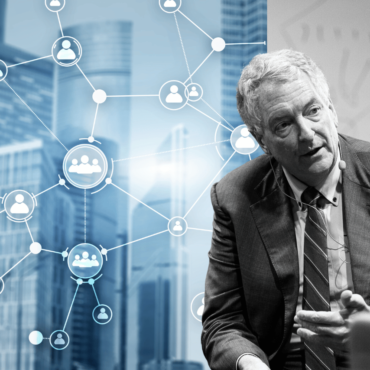
by Kevin Empey
WHY SHOULD YOU CARE?
As we all embark on shaping the next phase of work and working life, there is a natural mix of concern about ‘getting the transition right’ and also sense of excitement and optimism about a once in a generation opportunity to shape the future of work, here and now.
HR’s leadership role in managing the pandemic from a people and business continuity perspective has been well documented.
Being the ‘first responder’, as Dave Ulrich called it, for our organisations in coping with global health crisis, to supporting leaders, managers and teams in the delivery of business and organisational priorities and outcomes has provided further evidence of the impact, resourcefulness and skill of HR.
Now the profession is centre stage again with the expectation to guide and lead our organisations through an even more complex and tricky phase of work design than the 100% remote model that was enforced on us by the pandemic.
As many have remarked in recent months..”it was one thing to get people out of the office against the backdrop of a pandemic and a common set of rules and guidelines for everyone, it is quite another to get people back to a new model of work that is complicated by choice and expectation and continuous comparison with what everyone else is doing”.
This next phase of work is a complex, ambiguous, vulnerable leadership challenge for everyone: organisational leaders, people managers, for HR for employees alike.
But the transition to the next phase of work is also an invaluable case study of agility in action, a case study that we can all share and experience together, learn from, experiment with and most importantly embed into our daily practice and ways of working into the future. This next phase of work is new for everyone and, from a HR perspective, there is a great change management opportunity in that fusion of interest and concern from all stakeholders in making it a success.
The Longer Term Prize for HR – and for leaders and employees
The potential prize for HR over the next 6-12 months is therefore not just a safe and successful transition to a new, post-Covid work model. It is about using the learning and experience of this transition (along with the lived experience of leaders and employees over the last 18 months), to help the organisation develop and embed more agile ways of working, leading and thinking for the future. Being deliberate about developing these skills over the coming months will ensure that our collective ability to deal with change, uncertainly and disruption becomes a normal reality and expectation of 21st century working life as opposed to an episodic, urgent or temporary necessity. Most of all it means our leaders and our workforces will be able to flourish and thrive in the longer term future of work and not just respond and cope from one disruption to the next.
Conscious development of the sustained and deliberate capability of agility at organisational, team and individual level is one of the real prizes and long lasting lessons of Covid. And this prize can be won through our combined work over the next 6-12 months as we go through the experience of co-creating new, successful working models and working lives.
Start with an agile mindset
The practices, skills and tools of leading and working in an agile way will be important enablers as we all co-create and develop the emerging work model and associated people processes. They also help employees, leaders and HR teams to develop new habits, practices, routines and ways of working. Using the work design challenges over the next 6-12 months as a common objective, these practices and skills can evolve over time in ways that work for each organisation and team.
But one thing HR, leaders and our employees can to today towards building agility as a sustainable capability, and making best use of the experiences to come, is encouraging and ensuring that employees and managers start out with an agile mindset – an attitude and openness to the learning experiences and transition activity ahead. Setting out on any journey requires preparation and attention to our approach, not just a head long dive into the unknown. An agile mindset is fundamental to any effort in improving agility and navigating complexity– at organisational and at individual level. The Business Agility Institute’s global agility survey in 2020, for example, identified leadership and agile mindset as the two biggest barriers / enablers to enterprise agility, way ahead of other factors such as structures, processes and technology.
What is an agile Mindset
In Thrive in the Future of Work, we explore what an agile or future of work mindset is in practical reality, how it contrasts with traditional ways of approaching work challenges and how it can be developed. In essence the agile mindset is a mental orientation, inclination or attitude towards certain characteristics such as:
- Being open to continuous learning and new experience (Growth Mindset)
- Having the resilience and positive orientation towards embracing change and ambiguity
- Driven by a higher purpose and customer need, not just strategy and organisational objectives
- Having a bias for informed action, comfortable with iteration and experimentation and doing ‘just enough’ analysis to inform such activity
- Emphasis on collective knowledge, collaboration, diversity and co-creation
The agile mindset goes somewhat beyond the growth mindset concept due to its bias towards purposeful action and experimentation, specifically in more complex situations as well as its orientation towards collaboration and co-creation.
Over the coming months there will be many valuable and necessary training and development needs and activities in supporting managers and employees successfully transition towards the next phase of work. Helping managers, employees and HR colleagues to foster an agile mindset towards the beginning of this transition will not only bring benefits for the transition process itself but will also provide the foundation they need to flourish and thrive in the years ahead.
Kevin Empey is Managing Director of WorkMatters, an international Future of Work consulting and training company. His is also author of Thrive in the Future of Work https://workmatters.ie/overview/
Kevin will be leading the next WorkMatters Organizational Agility programme in March 2022. A 50% discount is available to all HR congress readers. Check it out here..https://workmatters.ie/academy/ – to claim your discount email: info@workmatters.ie
Written by: Kevin Empey
Culture Future of Work HR Agility Leadership Strategy & Transformation
Previous post

- 396
labelMasterclass today2022.02.05.
Dave Ulrich: How To Get Result from HR Transformation
Answering the question about HR’s effectiveness has evolved over the last 70 years as the management of people has shifted from seeing people as a tangible asset to an intangible [...]
Similar posts

labelArticles today2024.07.24.
AI-Powered HR: Strategic Benefits and Practical Applications

labelArticles today2024.06.24.









Post comments (0)